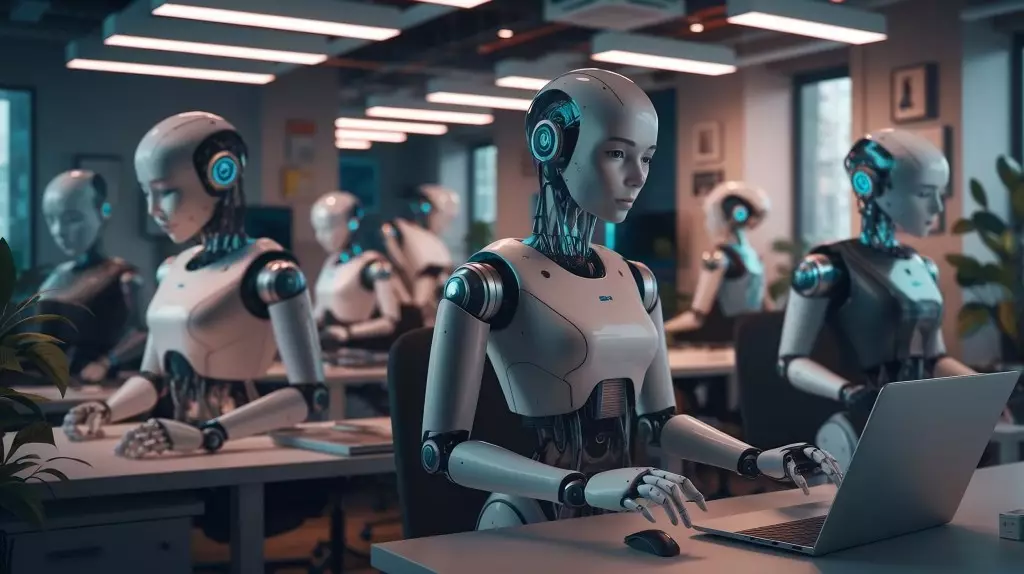In recent years, the landscape of software development has undergone an unprecedented transformation. Tasks that once defined the entry-level experience—such as writing simple scripts, designing basic HTML layouts, or configuring rudimentary DevOps pipelines—are increasingly being delegated to advanced AI systems. Tools like ChatGPT, GitHub Copilot, and Amazon CodeWhisperer are not merely assisting developers; they are automating roles that once provided foundational learning opportunities. This shift signals not just a technological upgrade but a fundamental paradigm shift in how we perceive and structure the process of becoming a developer.
Traditionally, the pathway into software engineering was straightforward: learn the basics, build small projects, troubleshoot simple bugs, then gradually ascend to more complex problems. The journey was clear-cut, allowing newcomers to acquire skills through manual practice and incremental growth. Today, however, these foundational tasks are rapidly disappearing from the novice’s terrain. As AI takes over the grunt work, entry-level developers are expected to jump into complex problem-solving much earlier—sometimes even without a comprehensive understanding of the underlying systems. This accelerates a troubling trend: speed is prioritized over deep learning, risking a generation of developers who can produce code but lack the critical understanding of how software truly functions.
The implications for the industry are profound. If the core entry-level experiences are bypassed or minimized, how will future engineers develop the intuition and depth necessary for leadership? The traditional ladder—building from scripting to system architecture—may soon give way to a more flattened hierarchy where basic coding serves as a stepping stone rather than a foundation. Developers will need to evolve from manual coders into strategists, problem solvers, and system shapers who understand not just how to code but why certain solutions matter in broader contexts.
Reimagining Developer Skill Sets for an AI-Driven Environment
In this brave new world, the most valuable skill no longer remains merely the ability to write code. Instead, it will be the capacity to orchestrate, guide, and collaborate with AI tools to produce meaningful, sustainable software solutions. The traditional developer who simply memorizes syntax and constructs basic features risks obsolescence if they do not adapt. What will distinguish successful professionals will be their ability to conceptualize projects—distinguishing what needs to be built, understanding the user’s needs, and directing AI systems to execute complex tasks accordingly.
To thrive, future developers must become hybrid thinkers—combining technical fluency with strategic insight. Familiarity with user experience, product design, and system architecture will be as essential as mastery over AI assistants. The role might resemble that of a product manager with deep technical competence, rather than a mere coder. Such professionals will excel in framing problems, selecting appropriate AI models, and overseeing the ethical and effective deployment of automated tools.
This transition represents an opportunity for a broader redefinition of what it means to be a developer. Instead of focusing solely on rote coding, the emphasis will shift toward creativity, synthesis, and systems thinking. Those who possess problem-solving skills, empathy for end users, and an ability to think strategically will find themselves at the forefront of an industry that values high-level vision over low-level implementation.
The Evolution of Teams and Collaboration in a Post-Juniors Era
It’s tempting to assume that automation will diminish the need for human involvement entirely, but reality suggests a different trajectory. Instead of shrinking, teams will transform into more streamlined, versatile units. The days of rigidly defined roles—front-end specialist, back-end expert, QA engineer—may give way to a more fluid environment where a single, AI-augmented developer manages entire pipelines. These developers will oversee multiple aspects of a project, leveraging AI to handle routine coding, testing, deployment, and even monitoring.
This condensed structure has promising implications for efficiency: reduced communication overhead, faster iteration cycles, and the ability for individuals to accomplish what previously required large teams. However, this shift also demands a recalibration of human contributions. The focus will move from “doing” to “guiding.” Human input will be concentrated on setting strategic goals, ensuring ethical use of AI tools, and making high-stakes decisions that require nuanced human judgment.
Moreover, the collaborative dynamic will deepen in complexity. Human developers will need to understand not only how to interact with AI but also how to interpret its outputs and correct its biases. This creates a new layer of responsibility—balancing technical expertise with ethical oversight and strategic foresight.
New Frontiers: Hybrid Roles and the Human Factor
Looking ahead five to seven years, the traditional concept of a developer will likely be entirely reshaped. The future professional will embody hybrid roles—combining coding, design, strategic planning, and even user experience considerations. Coding as a standalone function will become less relevant; instead, the role will evolve into that of a “system architect with AI expertise” or a “product visionary with technical fluency.”
Those with creativity, empathy, and strong problem-solving abilities will command the most significant opportunities. As AI handles the mechanics, humans will focus on cultivating innovative ideas, aligning technology with user needs, and managing the ethical implications of automation. The skill set of tomorrow’s developer will be as much about system design and strategic vision as it is about technical proficiency.
This evolution may seem daunting to some—what does it mean to learn to code in an age when AI can do the heavy lifting? But it also opens up vast possibilities for talent development. Instead of conforming to a narrow skill set, aspiring developers can expand their expertise across disciplines, becoming versatile professionals capable of shaping entire product ecosystems. The key will be to embrace lifelong learning, continuously adapting to new tools and paradigms.
The transformation is inevitable, but it’s not a threat. For those willing to pivot, it’s an opportunity to redefine the very essence of software development—to create, innovate, and lead in ways that were previously unimaginable. As automation takes over the routine, humans will increasingly become the architects of originality, the strategists behind the machines, and the custodians of ethical, impactful technology.

